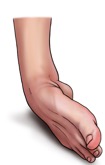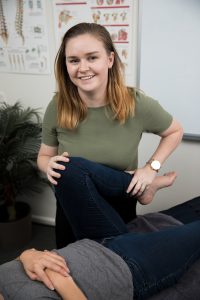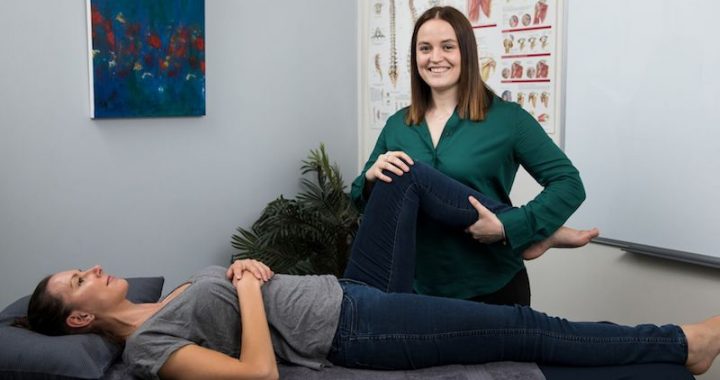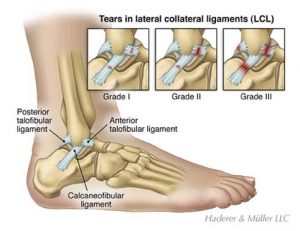Have you Sprained your Ankle?
By North Ryde Physiotherapist Nicola Simpson

Have you ever “rolled” or “sprained” your ankle during a sporting activity or misplacing a step whilst walking? Have these sprains taken longer to recover than expected? Ankle sprains are one of the most common lower limb injuries and can occur in sports that involve rapid changes of direction such as basketball, volleyball, netball and football. In this blog, Physiotherapist Nicola Simpson discusses Ankle sprains: the structures affected, signs and symptoms, and what treatment can be done.
What structures are damaged during an ankle sprain?
Ankle Sprains often occur when the ankle rolls outwards, and this can typically damage 2 ligaments that connect the bones in our foot and one of our lower leg bones the fibula:
- Anterior talo-fibular ligament (ATFL) ** most common
- Calcano-fibular ligament (CFL)
What are the Signs and Symptoms of a Sprained Ankle?
You may have sprained your ankle if you have experienced one or more of the following symptoms:
- Loud snap, crack or tearing sensation
- Rapid or Delayed Swelling with or without any bruising
- Can weight bear- but often with a limp
- Pain with movements such as pointing the toes or turning the bottom of your foot inwards (inversion)
- Point tenderness over the injured site
If you have experienced one or more of these symptoms, we recommend booking an appointment with your allied health practitioner, such as a Physiotherapist, Osteopath or Chiropractor.
What does treatment for a Sprained Ankle include?
If you have sprained your ankle, it is important to book an appointment with your health practitioner, as early as failure to  adequately rehabilitate a minor ankle injury can lead to further complications including ankle instability, anterior or posterior impingement, chronic pain and syndesmosis injuries.
adequately rehabilitate a minor ankle injury can lead to further complications including ankle instability, anterior or posterior impingement, chronic pain and syndesmosis injuries.
Treatment for a sprained ankle may include:
- Increasing ankle joint mobility and range of motion
- Muscle strengthening of weak muscles
- Improve proprioception and balance
- Posture and gait correction
- Relieving tight or overactive muscles
- Strapping and/or bracing
- Education and advice
- Specific return to sport rehabilitation
Where can I learn more about Physiotherapist Nicola Simpson?
For more information on Nicola Simpson and Physiotherapy here at Ryde Natural Health Clinic, or to book an appointment, call RNHC Reception on (02) 9878 5021, or head to https://rydenaturalhealthclinic.com.au/services/physiotherapy-north-ryde/.


